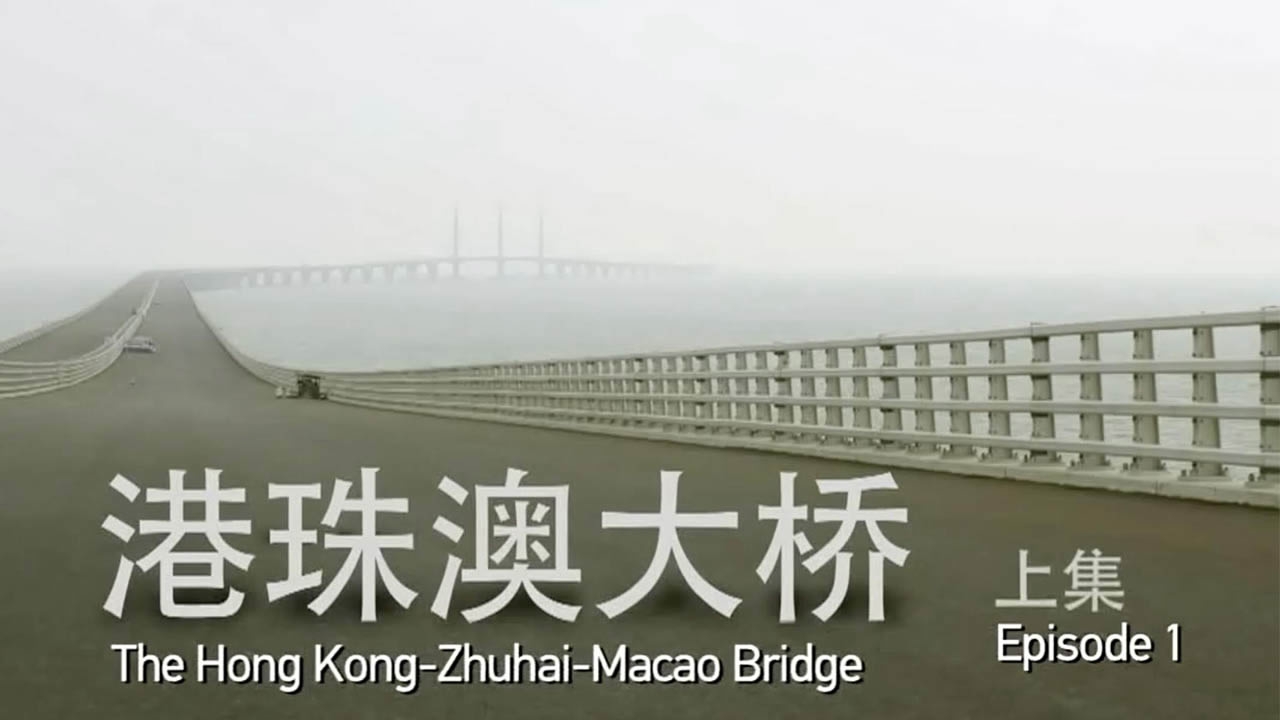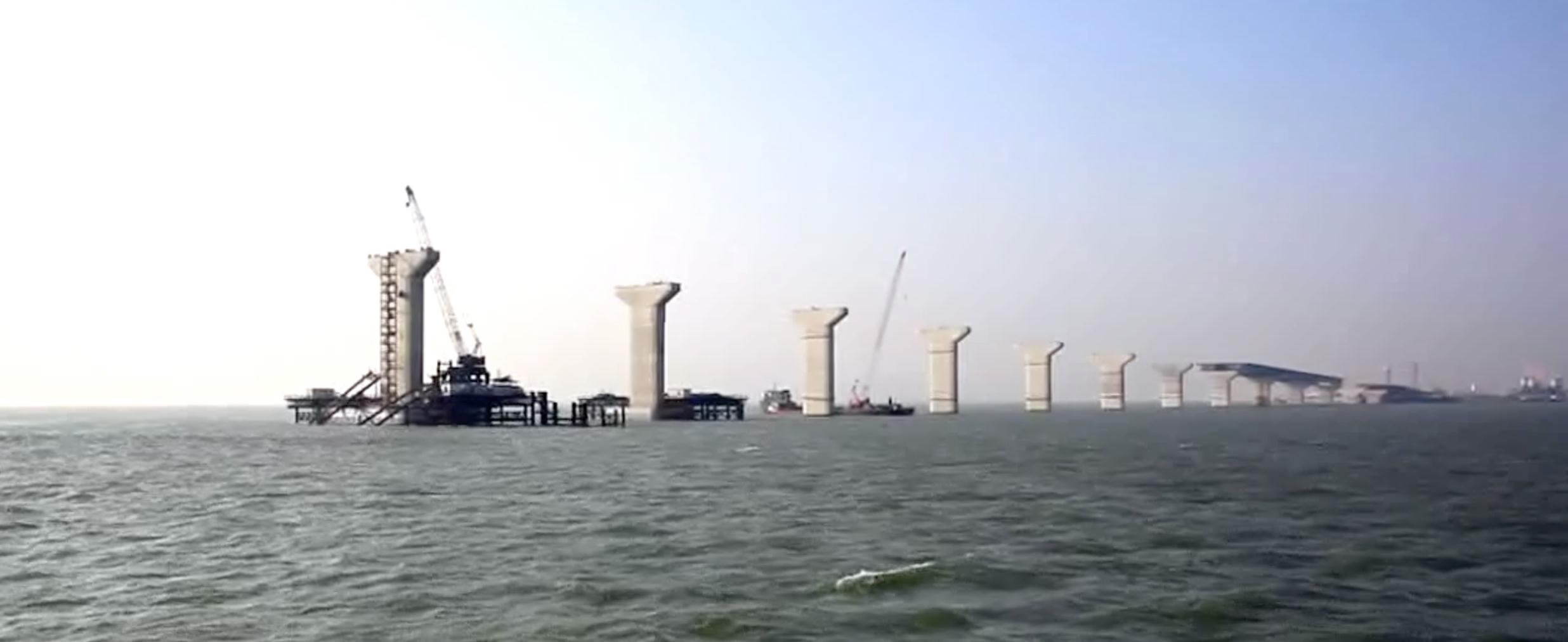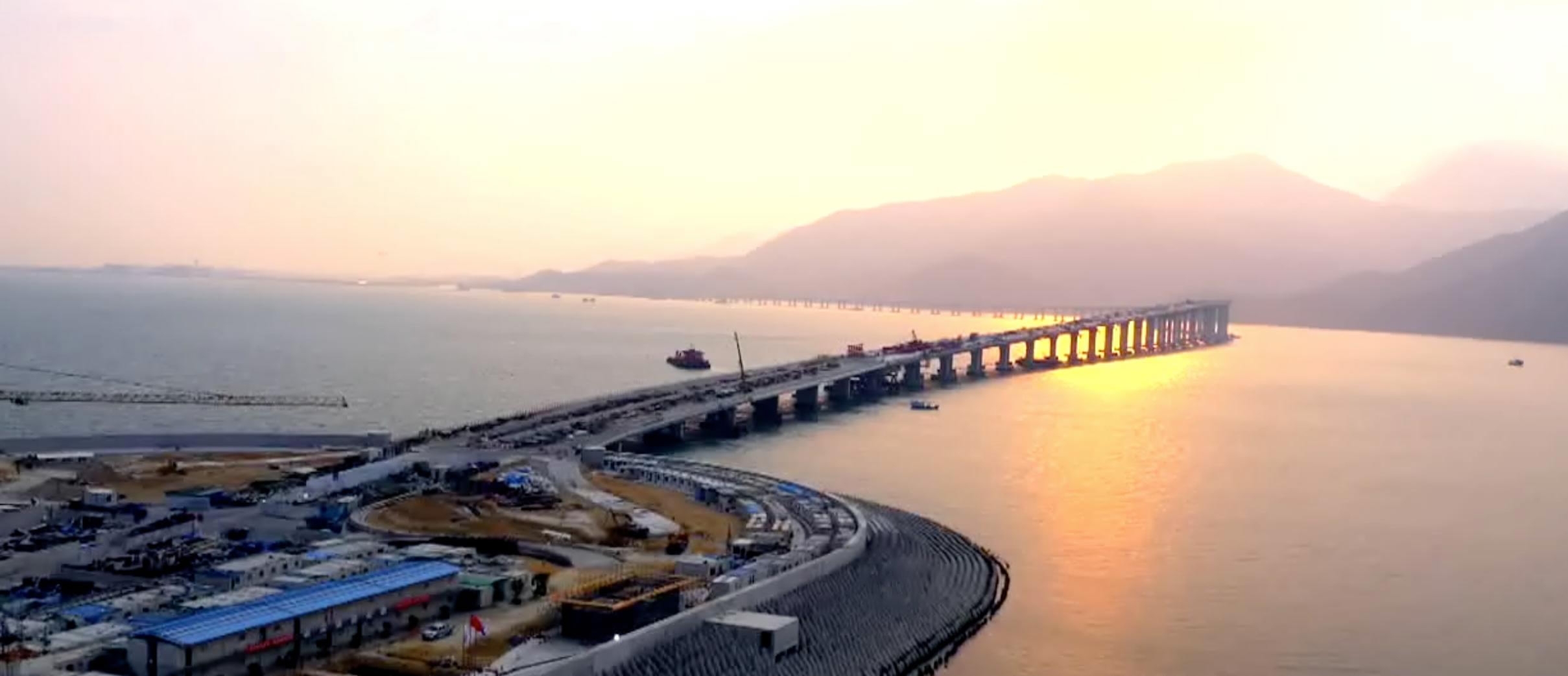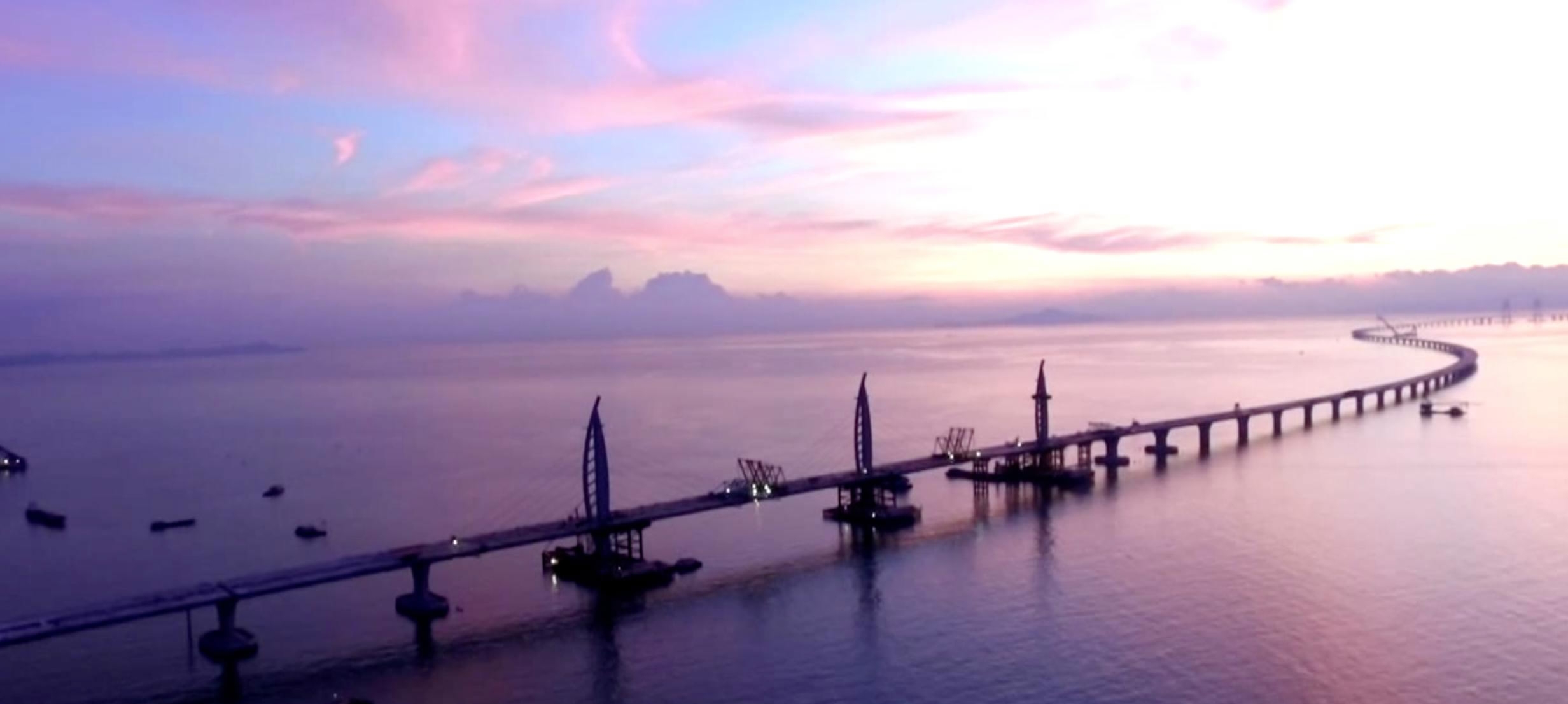
Culture & Sports
18:40, 30-Jun-2017
The Hong Kong-Zhuhai-Macao Bridge in numbers

By CGTN's Yang Wentao & Zhu Qinliang
In 2009, work began on what would be the world's longest cross-sea bridge. Spanning China's Lingding Channel in the Pearl River Delta, the Hong Kong-Zhuhai-Macao Bridge (HZMB) will extend for a total of 55 kilometers once it is completed. The structure would comprise 22.9 kilometers of steel bridges, four man-made islands and the world's longest submerged sea tunnel – extending for 6.7 kilometers at a depth of 40 meters.

CGTN Photo
CGTN Photo
The HZMB is formed of 2,156 box girders, amounting to 400,000 tons of steel – roughly the weight of 60 Eiffel Towers. The girders, each of which measures 132.6 meters, were assembled in Zhongshan in Guangzhou, and later shipped 40 kilometers to the construction site.

CGTN Photo
CGTN Photo
The HZMB is designed to withstand "force 16 typhoons" and "force eight earthquakes". Another principal requirement is that it must not disrupt shipping in the area or flights in and out of the Hong Kong and Macao international airports.

CGTN Photo
CGTN Photo
Meeting these demands has created the need for a series of innovations in the bridge’s design, and in the construction materials and methods. Further breakthroughs will also help ensure that the bridge achieves its planned life span of 120 years – a significant advance on the 100 years that large-scale bridges have been designed to last, up until now.
The main part of the project, the 22.9-kilometre-long bridge section over the sea, would need to have the longest possible spans so that it doesn't impede shipping. The structure would also have to be light, to withstand earthquakes. This made a regular concrete bridge design unsuitable. Instead, the choice fell on a lighter, more durable steel structure.

CGTN Photo
CGTN Photo
The engineering breakthroughs associated with the bridge are not limited to steel. More than 1,000 patents have been awarded, for innovations related to the construction of the bridge, the man-made islands and the tunnels.
Economists have high hopes for the HZMB. The bridge will tie the three cities closer together, and boost development in the Guangdong-Hong Kong-Macao area. In building this massive structure, the number of technical innovations is more than most engineers could hope to see in a lifetime.
1987km

SITEMAP
Copyright © 2018 CGTN. Beijing ICP prepared NO.16065310-3
Copyright © 2018 CGTN. Beijing ICP prepared NO.16065310-3